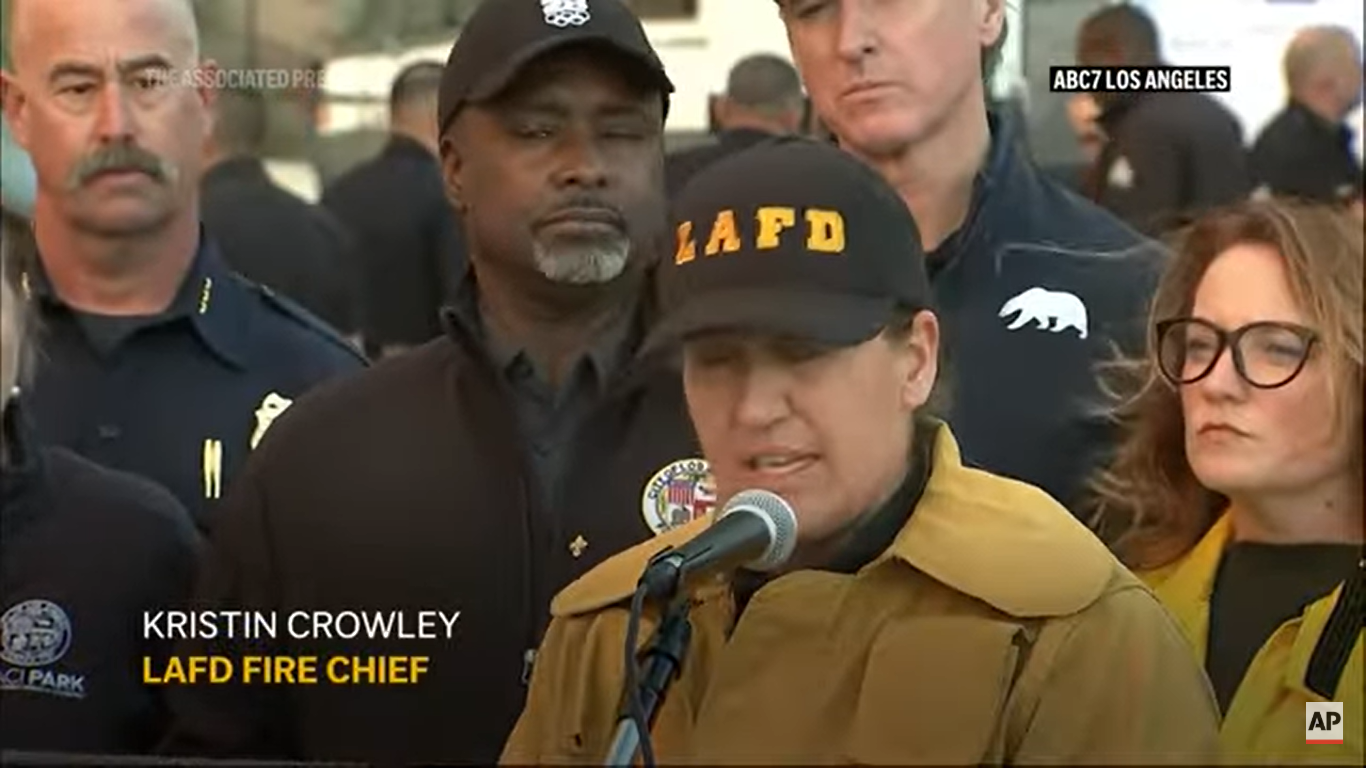Southern California is once again in the grip of devastating wildfires, with communities reeling from the destruction and thousands of residents forced to flee. Fueled by fierce winds, dry conditions, and overgrown vegetation, the fires are spreading rapidly, leaving a trail of destruction in their wake. This crisis has sparked urgent questions: What’s fueling the rise in wildfires, and is this the new normal for California?
Let’s dive into the unfolding events, the factors contributing to the disaster, and what the future holds for wildfire-prone areas.
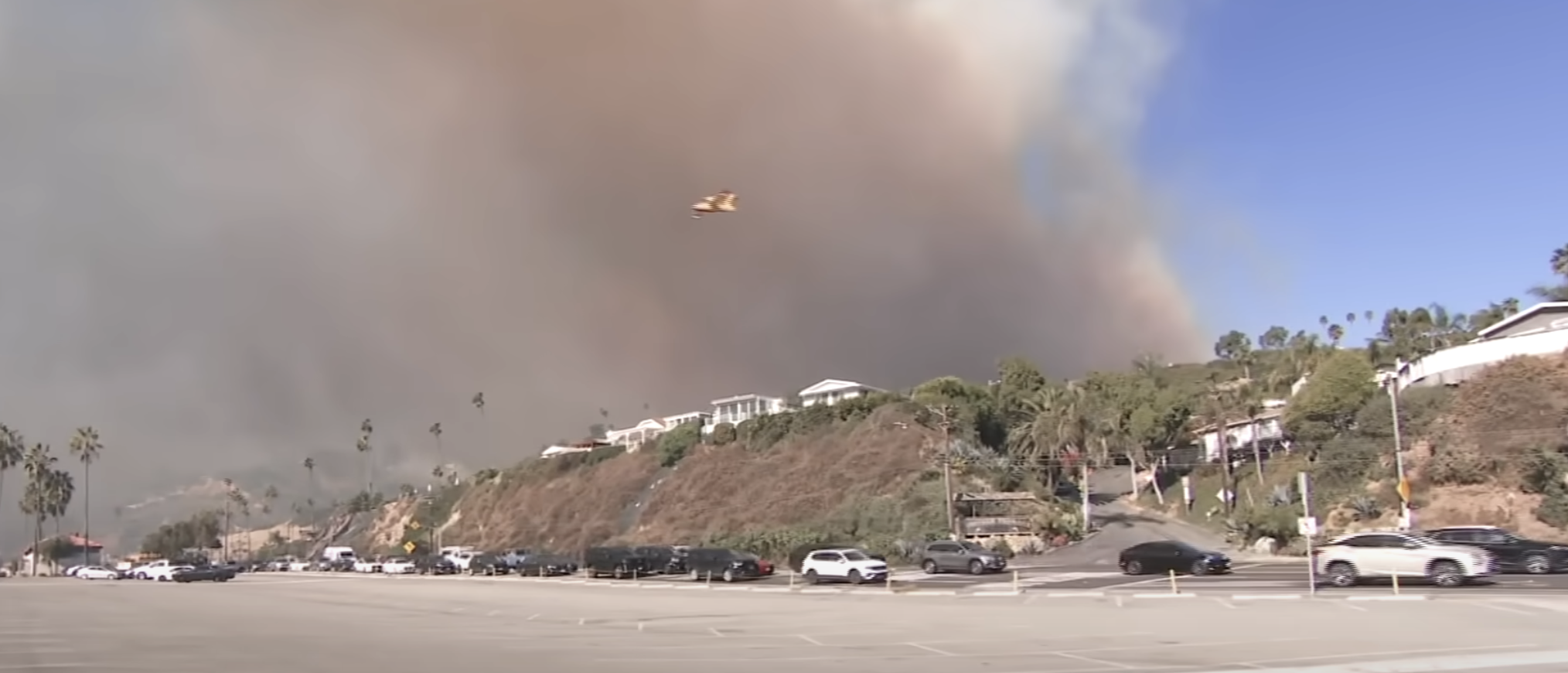
Southern California engulfed in flames on January 7, 2025, in Los Angeles, California. | Source: YouTube/CBSEveningNews
A Massive Blaze Forces Thousands to Evacuate
On January 7, powerful winds intensified wildfires across Southern California, prompting the evacuation of over 30,000 residents. These blazes have erupted in multiple locations, tearing through communities, threatening lives, and destroying property.
The Palisades Fire: A Coastal Disaster
In the west, the Palisades fire has ravaged over 2,900 acres in the Pacific Palisades area near downtown Los Angeles. This upscale neighborhood, home to multi-million-dollar properties, has been devastated by the flames. Within just three hours on January 7, the fire doubled in size, demonstrating the rapid escalation of its threat.
The Eaton Fire: A Growing Threat in the San Gabriel Mountains
To the east, the Eaton fire has consumed over 1,000 acres in Eaton Canyon, just north of Pasadena. By nightfall on January 7, the fire remained entirely uncontained, with at least 550 homes in its path.
The Hurst Fire: Flames in Sylmar
Meanwhile, in the San Fernando Valley suburb of Sylmar, the Hurst fire has grown to 100 acres. Evacuations are underway as firefighters race to contain the blaze and protect communities.
The Perfect Storm: Why These Fires Are So Intense
Southern California’s wildfires are fueled by a deadly combination of weather and environmental conditions. Experts warn that these factors are creating “perfect storm” scenarios for devastating fires.
1. Strong Winds
The infamous Santa Ana winds are wreaking havoc, with gusts reaching over 100 miles per hour in some areas. These dry, forceful winds spread embers rapidly, igniting new fires and making containment efforts nearly impossible.
2. Dry Conditions
After two rainy winters, vegetation in Southern California grew abundantly. However, this year’s lack of rain has left that vegetation dry and highly flammable, creating a tinderbox environment.
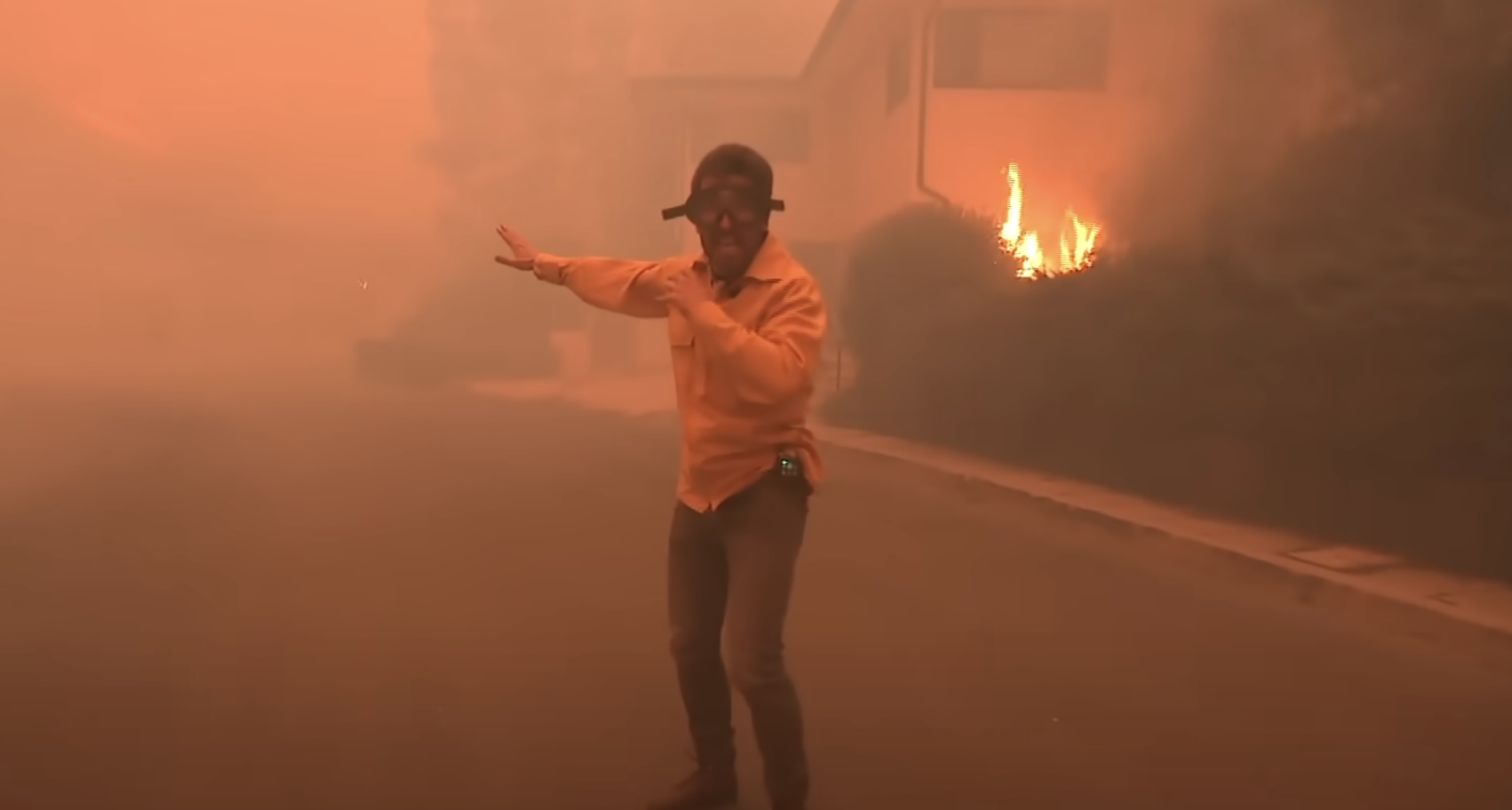
Jonathan Vigliotti reporting from the scene on January 7, 2025, in Los Angeles, California. | Source: YouTube/CBSEveningNews
3. Unpredictable Weather
The ongoing windstorm is expected to be one of the most destructive in the Los Angeles region since 2011. The National Weather Service has issued red flag warnings, urging residents to remain on high alert for rapidly changing conditions.
Communities at Risk: Evacuation Orders and Warnings
As the fires rage on, evacuation orders have been issued for thousands of residents. Authorities are urging everyone in affected areas to heed these warnings and leave immediately if instructed to do so.
Evacuation Centers
The Westwood Recreation Center at 1350 South Sepulveda Blvd, Los Angeles, has been designated as an evacuation center for displaced residents.
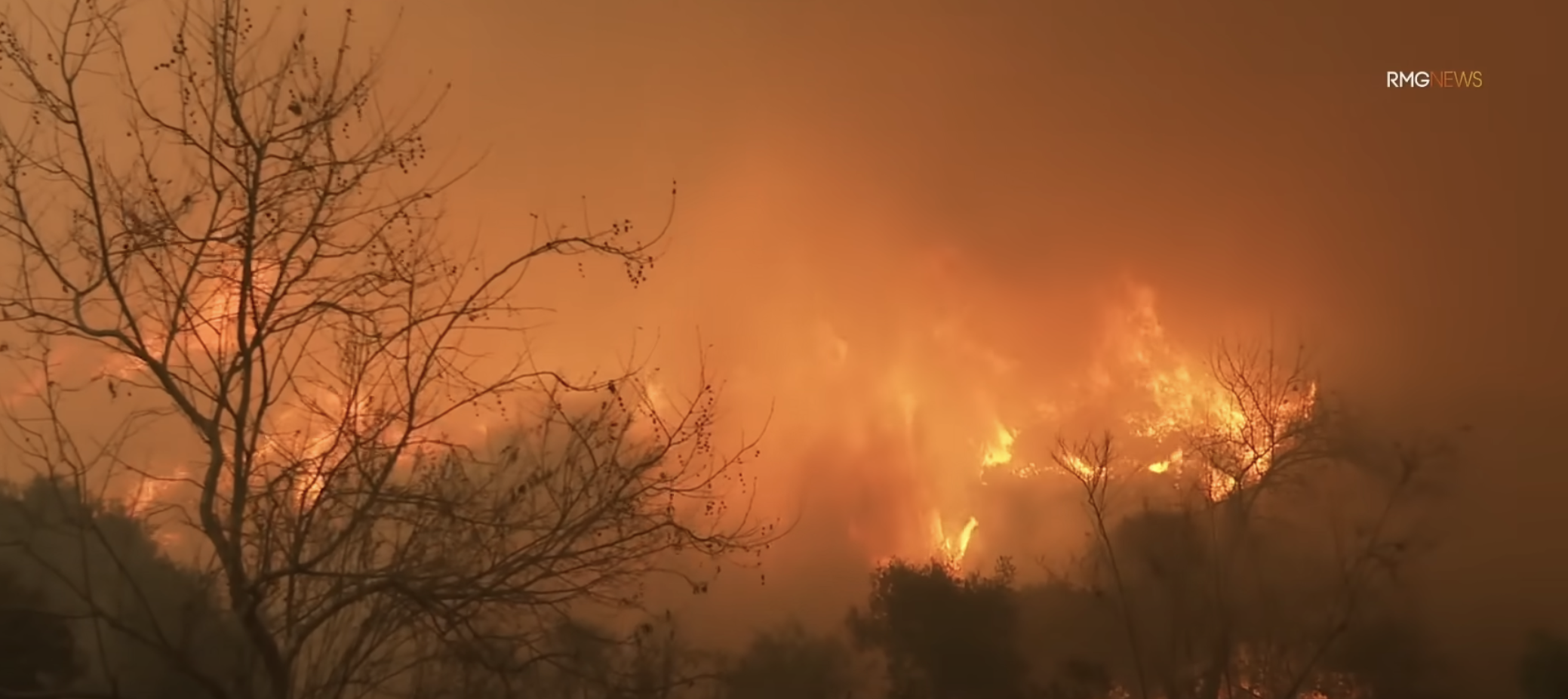
The wildfire pictured on January 7, 2025, in Los Angeles, California. | Source: YouTube/CBSEveningNews
Threatened Homes and Structures
- The Palisades fire alone threatens over 10,000 households and 13,000 structures.
- The Eaton fire has placed 550 homes in danger, according to Pasadena officials.
A Community’s Perspective: Fear and Resilience
Residents impacted by the fires have described scenes of chaos and fear as flames encroached on their homes. Some, however, have refused to evacuate, ignoring official orders despite the obvious risks.
Governor Newsom’s Warning
California Governor Gavin Newsom visited the affected areas and emphasized the importance of following evacuation orders. He stated:
“The fact that people were still not evacuated, still did not heed the warning, is a reminder of how serious this moment is. Listen to these evacuation orders.”
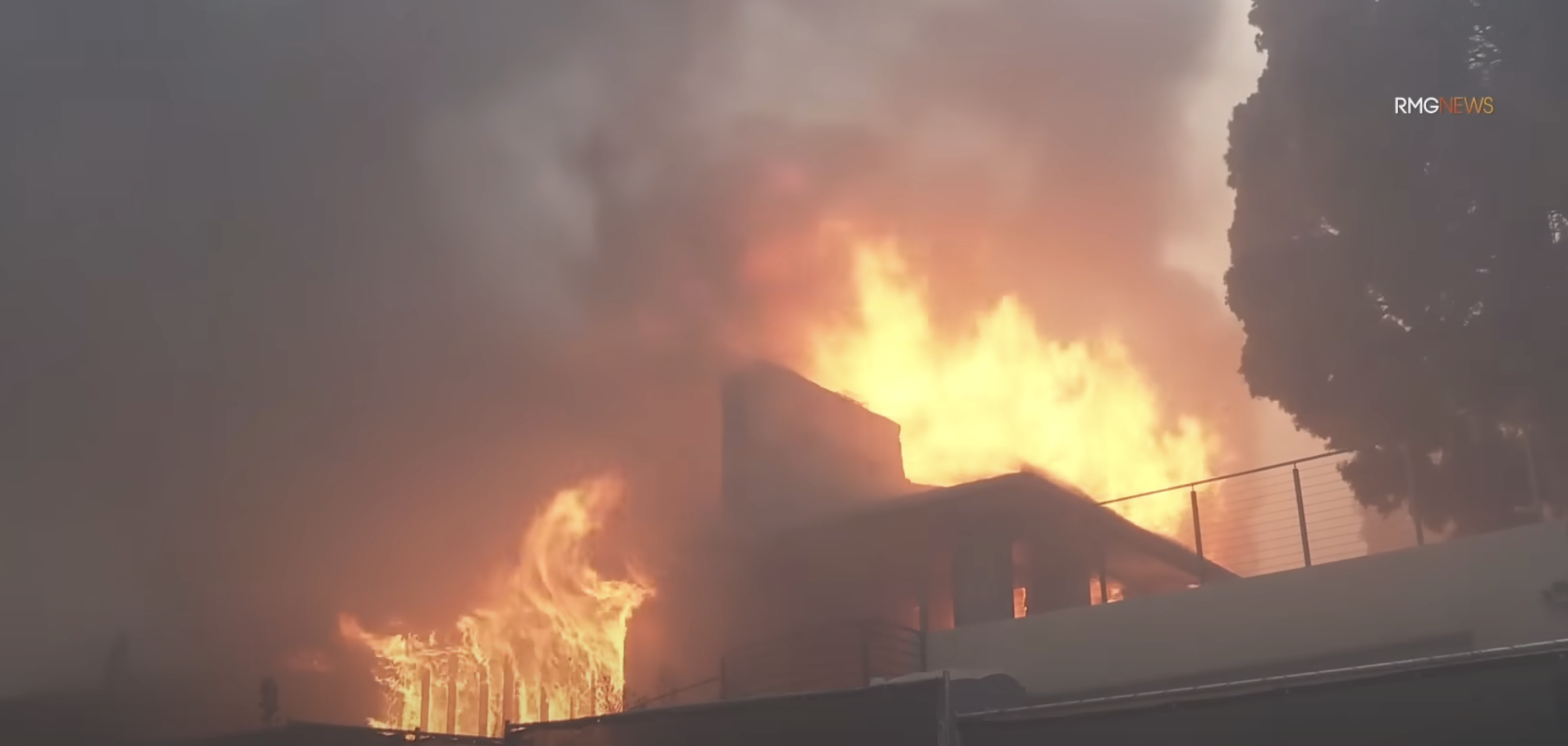
A house engulfed in flames on January 7, 2025, in Los Angeles, California. | Source: YouTube/CBSEveningNews
The Courage of Firefighters
Firefighters are working tirelessly in hazardous conditions to battle the flames. However, their efforts have been complicated by worsening winds and challenging terrain. Aerial firefighting operations had to be grounded due to strong winds, delaying containment efforts further.
Is an Increase in Wildfires the New Normal?
The frequency and intensity of wildfires in California have been rising over the past decade, and experts warn that this trend could continue—or even worsen—in the coming years.
The Role of Climate Change
Scientists point to climate change as a significant factor in the growing wildfire crisis. Rising temperatures, prolonged droughts, and erratic weather patterns have created ideal conditions for fires to ignite and spread.
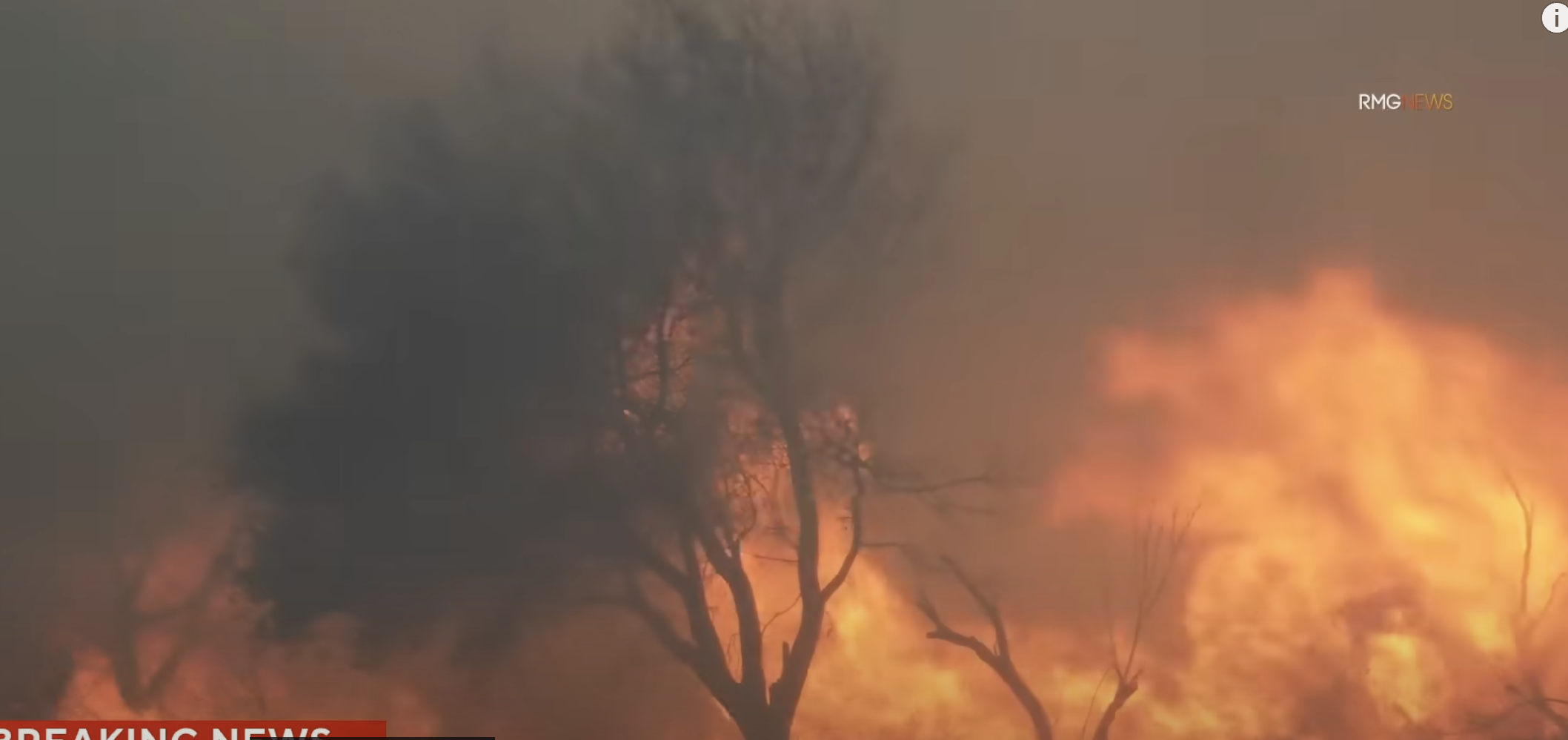
Wildfire ravaging Southern California on January 7, 2025, in Los Angeles, California. | Source: YouTube/CBSEveningNews
Urban Expansion
As more homes are built near forests and wildlands, the risk of property loss and human casualties increases. Urban expansion into fire-prone areas is making it more difficult to manage and prevent fires.
The Need for Preparedness
California is investing in fire prevention and preparedness strategies, such as clearing brush, improving firefighting resources, and implementing stricter building codes. However, these measures may not be enough to counteract the escalating risks.
The Human and Environmental Toll of Wildfires
The impact of wildfires extends far beyond property damage. These disasters take a significant toll on both people and the environment.
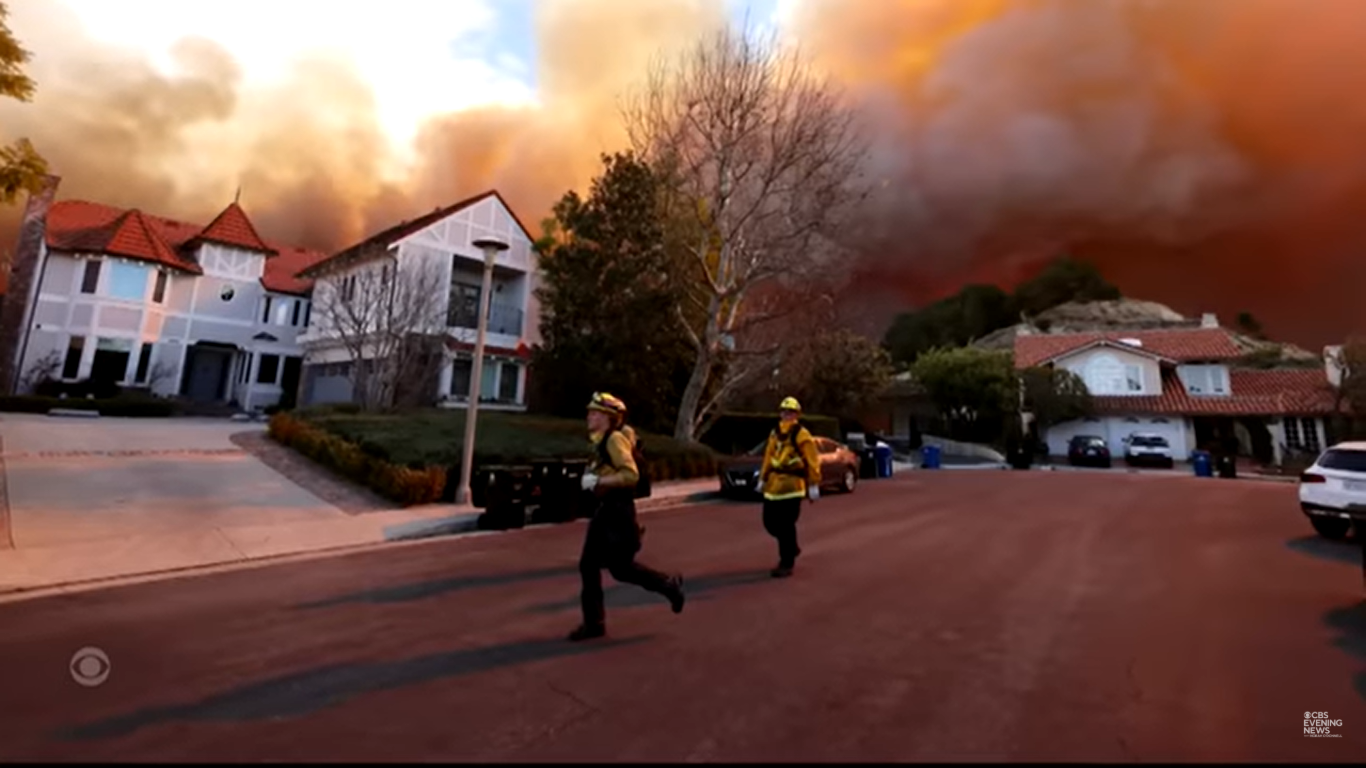
Firefighters pictured at the scene on January 7, 2025, in Los Angeles, California. | Source: YouTube/CBSEveningNews
Health Concerns
The smoke and ash from wildfires can cause respiratory issues, especially for vulnerable populations such as children, the elderly, and those with preexisting health conditions.
Loss of Wildlife and Habitats
Wildfires destroy ecosystems, displacing wildlife and devastating habitats. The long-term recovery of these areas can take decades.
Economic Costs
The financial burden of wildfires is staggering, from firefighting expenses to rebuilding costs and lost tourism revenue.
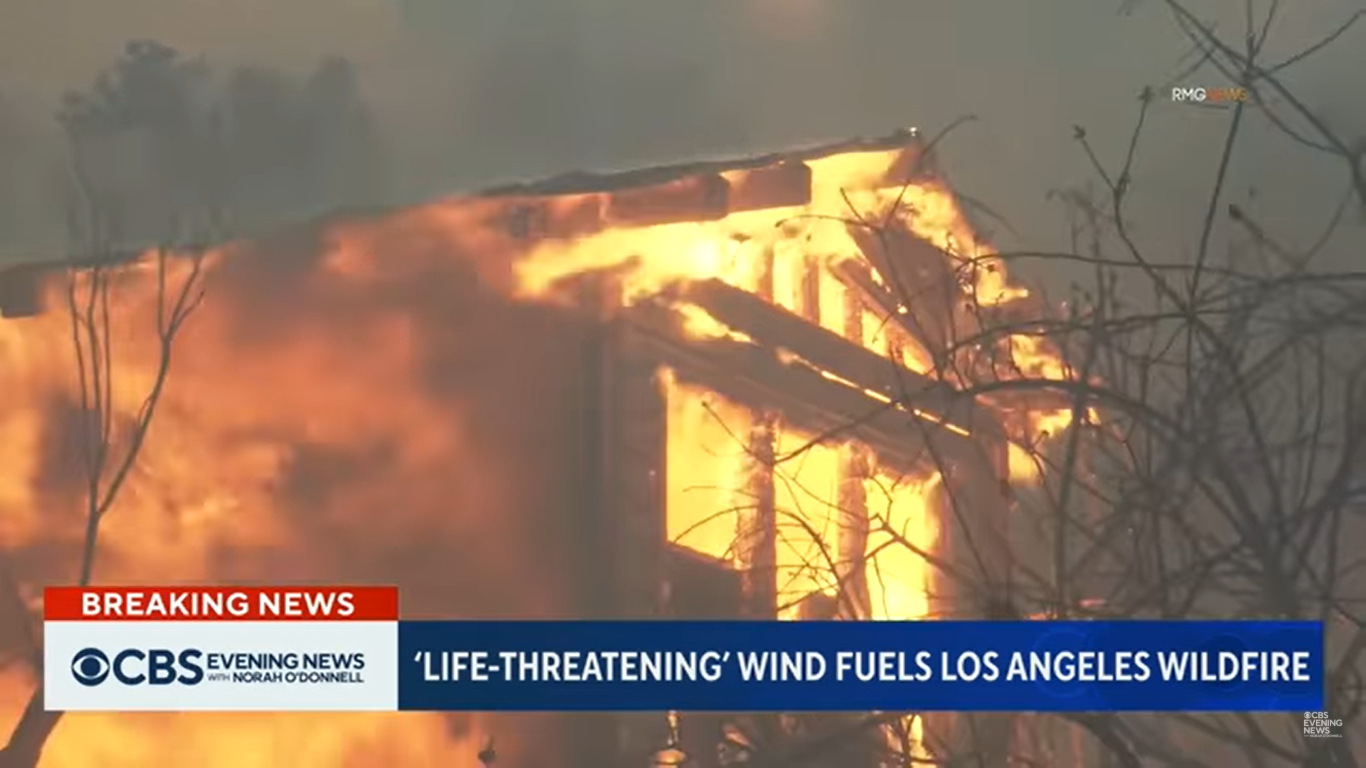
A house engulfed in flames on January 7, 2025, in Los Angeles, California. | Source: YouTube/CBSEveningNews
What’s Next for Southern California?
As firefighters continue to battle the flames, the immediate priority is containing the fires and protecting lives and property. However, long-term solutions are needed to address the root causes of the wildfire crisis.
Residents’ Role in Prevention
- Clear brush and debris around your property.
- Follow evacuation orders and stay informed about fire conditions in your area.
- Support initiatives aimed at reducing the risk of wildfires.
Policy Changes and Climate Action
State leaders and policymakers must continue to prioritize climate action and invest in sustainable solutions to mitigate the impact of wildfires.
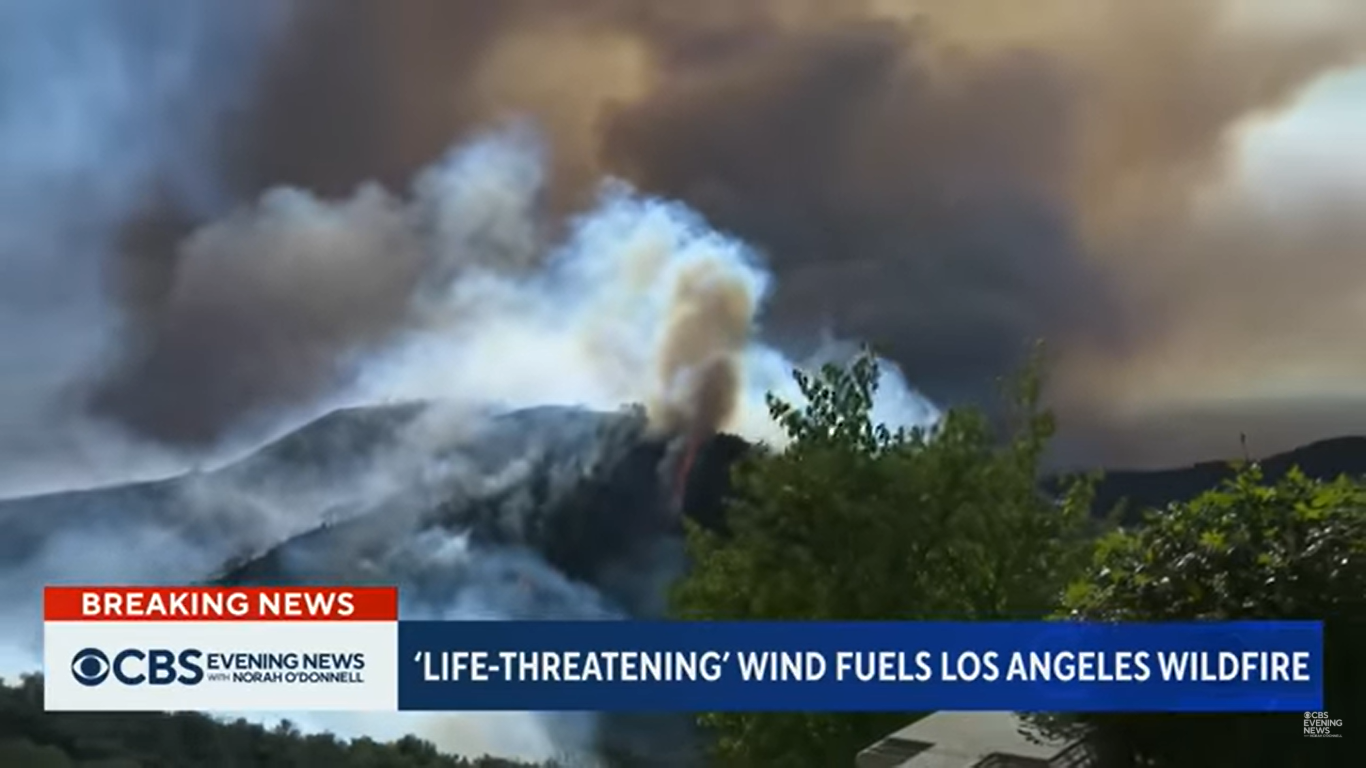
Mountaintop pictured on fire on January 7, 2025, in Los Angeles, California. | Source: YouTube/CBSEveningNews
Conclusion: A Wake-Up Call for Preparedness
The devastating wildfires sweeping through Southern California serve as a stark reminder of the challenges posed by extreme weather and climate change. With thousands displaced and communities on edge, the importance of preparedness and resilience cannot be overstated.
As residents, firefighters, and state leaders work together to navigate this crisis, one thing is clear: Addressing the root causes of wildfires and adapting to a changing climate is essential for protecting lives, property, and the environment.
The current fires may eventually be contained, but the lessons they leave behind will shape California’s approach to wildfire prevention and response for years to come.
